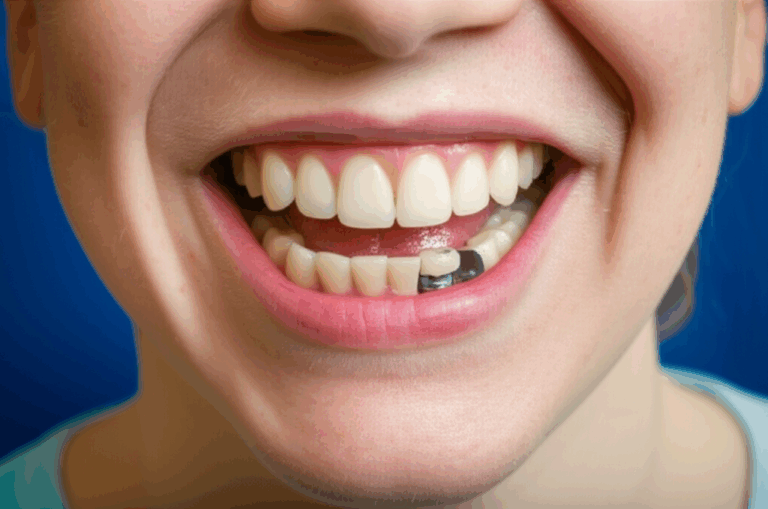
Can Pregnancy Cause Dental Problems? A Caring Guide to Protecting Your Smile During Pregnancy
Pregnancy is a special time. Your body goes through lots of changes—some are wonderful, some can make you stop and ask, “Is this normal?” If you’ve noticed your gums bleeding more than usual, your teeth feeling super sensitive, or new pains in your mouth, you’re not alone. Many soon-to-be parents wonder: Can pregnancy cause dental problems? And if it can, what should you do about it?
Let’s clear things up: Yes, pregnancy can definitely affect your mouth. But don’t panic. Most problems can be managed, and with the right info, you can look after your teeth and gums—for you and your baby.
Table of Contents
- The Short Answer: Yes, Pregnancy Can Change Your Oral Health
- Why Pregnancy Leads to Dental Changes: Understanding Why
- Common Dental Problems During Pregnancy
- How to Prevent Dental Problems During Pregnancy: Top Tips
- Dental Work During Pregnancy: What’s Safe?
- When to See a Dentist During Pregnancy
- Why Mom’s Mouth Health Matters for Baby
- Oral Health After Pregnancy
- Conclusion: Take Care of Your Mouth for a Healthier Pregnancy
The Short Answer: Yes, Pregnancy Can Change Your Oral Health
If you’re looking for someone to say you’re not making it up, here it is: pregnancy really does affect your mouth. The changes you’re noticing—from bleeding gums to sudden tooth pains—aren’t in your head.
Hormone changes, especially more estrogen and progesterone, are the big reason for most mouth changes during pregnancy. These hormones affect how your gums react to normal plaque, change your spit, and even how your body fights germs.
So yes, it’s normal for pregnant people to have new or bigger dental problems. The important thing is to know what to expect and how to handle them.
Why Pregnancy Leads to Dental Changes: Understanding Why
To really get what’s happening in your mouth during pregnancy, it helps to know a bit about what’s going on inside you.
Hormone Changes: Estrogen & Progesterone
Your gums are like the “alarm” in your mouth—they react fast to changes in your body. During pregnancy, extra estrogen and progesterone make blood flow increase everywhere, especially in the gums. Add a stronger reaction to even a little plaque (that sticky stuff on your teeth), and your gums can get red, puffy, and bleed easily.
Fun fact: Up to 70% of pregnant women get some gum swelling called pregnancy gingivitis.
More Acid From Morning Sickness & Heartburn
If you’re fighting feeling sick, you know how rough throwing up or heartburn can be. But all that stomach acid can wear away the hard outer shell (called enamel) on your teeth. Think of enamel as a rain jacket for your teeth—when it wears thin from lots of acid, teeth can become sensitive or get cavities.
Changing Diet and Cravings
Let’s be real—pregnancy cravings are famous. Maybe you want more snacks, more sweets, or tangy drinks. Enjoying your favorites is okay, but snacking on sugar and acid often makes it easy for cavity germs to grow.
Changes in Daily Tooth Care
Pregnancy means you might be extra tired, gag more easily, or just feel too sick to brush and floss well. Some mornings, even the smell of toothpaste could make your stomach turn! These things mean you might brush or floss less, giving germs more time to cause problems.
Spit Changes
Your saliva really helps your teeth. It washes away food, cuts down acid, and helps stop cavities. But pregnancy hormones can change how much spit you have, how runny or thick it is, and even how sour it is. Some people get dry mouth, which raises your risk for cavities. Others feel like they have more spit than usual—it’s all because of hormones.
Common Dental Problems During Pregnancy
Here’s what to watch for, and how to know when it matters.
Pregnancy Gingivitis
- What is it: Swelling of the gums, often looks red, puffy, sore, and gums bleed when you brush or floss.
- How common? About 50-70% of pregnant women get it.
- When does it start? Often in the second trimester and can get worse if ignored.
- What to look for: If you see “pink in the sink” after brushing, or your gums feel puffy and sore, it might be this.
Periodontitis (Bad Gum Disease)
- What is it: If gum swelling (gingivitis) isn’t treated, it can get worse and hurt the tissue and bone that hold your teeth in.
- Why care? It’s been linked to problems like early birth and low birth weight.
- How common? About 5-10% of pregnant women, more often if you already had gum problems before.
Cavities (Tooth Decay)
- Why dicey: More snacks, more sweets, acid from vomiting, and less spit all make cavities more likely.
- How common? Up to 40% of pregnant women get new or worse cavities.
Pregnancy Tumors (Pyogenic Granuloma or Epulis Gravidarum)
- What is it: Don’t worry—it’s not cancer. These are harmless, red bumps on the gums, often between teeth, usually in the second trimester.
- How common? Up to 5% of pregnant women.
- Do they go away? Most go away after birth, but if they bleed a lot or hurt, a dentist can remove them.
Tooth Sensitivity
- Why it happens: Enamel damage from acid, gums shrinking, and more sensitive teeth from hormones.
- What does it feel like? A quick ache or sting when you eat cold, hot, or sweet foods. Not fun, but often doesn’t last.
Dry Mouth
- Signs: Feeling thirsty, mouth feels sticky, or bad breath.
- Why it matters: Less spit means less natural protection from cavities and mouth infections.
How to Prevent Dental Problems During Pregnancy: Top Tips
Follow these steps to keep your smile healthy for you and your baby.
Good Oral Care
- Use a soft toothbrush and fluoride toothpaste twice a day. Brush gently near your gums.
- Don’t forget to floss: Clean between your teeth once a day to get rid of stuff your brush misses.
- Rinse smart: If you throw up, don’t brush right away. Rinse with water or a little baking soda in water first to help with acid.
- Mouthwash: Ask your dentist if a fluoride or alcohol-free mouthwash is okay for you.
Visit Your Dentist
- Why? Dentists can find gum swelling and cavities before they get bad.
- When? Try to go at least once while you’re pregnant—second trimester is most comfy.
- Tip: Always tell your dentist and hygienist you’re pregnant.
Eat Well and Snack Smart
- Cut down on sugar and acid: Try to have fewer sweets, sodas, and citrus.
- Smart snacks: Go for cheese, yogurt, nuts, or crunchy veggies—they’re good for you and don’t help tooth germs.
- Drink plenty: Water helps fight dry mouth and washes away acid.
If You Have Morning Sickness or Heartburn
- Rinse after getting sick: Mix a little baking soda in water and swish to help your teeth.
- Wait to brush: Give your teeth 30 minutes after throwing up to avoid brushing away soft enamel.
- Ask for help: If you have bad heartburn or sickness, talk to your doctor for help.
Take Prenatal Vitamins
- Why is it good? Calcium and vitamin D build strong teeth for your baby and keep your teeth healthy too.
- Bonus: Folic acid helps prevent birth problems and may help your gums.
Dental Work During Pregnancy: What’s Safe?
Not sure if going to the dentist is okay? Here’s what to know:
Cleaning and Fillings
- Usually safe! Regular cleanings are important during pregnancy.
- Best timing? The second trimester (weeks 13–27) is most comfortable for dental work.
X-rays
- Safe with care: Modern X-rays use low radiation. A lead apron and neck shield protect you and your baby. Don’t skip X-rays you need.
Numbing Shots
- Also safe: Meds like lidocaine are safe for most dental work during pregnancy.
Emergencies (Root Canals, Pulling Teeth)
- Don’t wait: Infections are worse for you and the baby than getting dental work.
Waiting On
- What to hold off on: Fake tooth treatments or cosmetic work (like whitening) can be done after pregnancy.
- Why: There’s no health need, so wait to be safe.
Tell Your Dentist
Even if you just found out you’re pregnant, let your dentist know. They’ll choose safer meds and make you comfortable.
When to See a Dentist During Pregnancy
Don’t be shy or embarrassed. See your dentist when you notice:
- Gums bleeding, puffy, or sore that doesn’t go away
- New or worse tooth pain or sensitivity
- Swelling, bumps, or strange growths in your mouth
- Bad breath that doesn’t go away even with brushing and flossing
- And for your regular pregnancy check-up
Don’t ignore problems and hope they stop! Quick care is important for you and your baby.
Why Mom’s Mouth Health Matters for Baby
It might surprise you, but how healthy your mouth is can affect your baby even before they’re born.
Research shows:
Moms with untreated gum disease (periodontitis) have a 2–3 times higher chance for early birth or small babies. No one is exactly sure why, but it looks like mouth swelling raises body chemicals that can make labor start early.
Germs can spread:
After your baby is born, moms with lots of cavity germs can spread them to their babies just by kissing, sharing spoons, or cleaning pacifiers with their mouth. Babies can get tooth decay early this way.
Taking care of your mouth now helps your child for years ahead.
Oral Health After Pregnancy
You made it through pregnancy—what’s next? Keep your good habits going!
- See your dentist if you put off any work while you were pregnant.
- Still brush and floss. Your hormones can take a while to go back to normal, so swollen gums may last a bit.
- If breastfeeding: Keep drinking water and eating good foods; you don’t need to skip dental care.
- Check your baby’s mouth: As soon as a tooth comes in, gently clean it and ask your dentist about infant dental care.
Conclusion: Take Care of Your Mouth for a Healthier Pregnancy
- Pregnancy affects your mouth, but you can do a lot. A few good habits make a big difference.
- Brush, floss, eat good foods, drink water—think of these as your “dental vitamins.”
- Don’t skip dentist visits; they’re part of your care team.
- Remember: Healthy gums and teeth help you and your baby.
Your smile will be with you for life—good care now keeps it strong and bright long after this journey.
Quick Action Steps: Protecting Your Smile in Pregnancy
- Brush twice and floss once daily.
- Rinse your mouth after morning sickness; wait 30 minutes before brushing.
- Schedule a dental visit, best in your second trimester.
- Tell your dentist you’re pregnant—even early on!
- Cut down on sugar and pick teeth-friendly snacks.
- Drink water to help with dry mouth.
- Call your dentist if you have swelling, bleeding, or pain.
You’re not alone in this. If you have questions—or need comfort—talk to your dental team. Better teeth and gum health during pregnancy is totally possible—you can do it!
More Information
Want to learn more about teeth? Check out teeth health. Curious about dental care, treatments, or lab work? Try dental care. If you’re into the science of dental crowns and bridges, see crown and bridge lab.
Keep taking steps to protect your pregnancy smile. Your future self—and your baby—will be glad you did!








